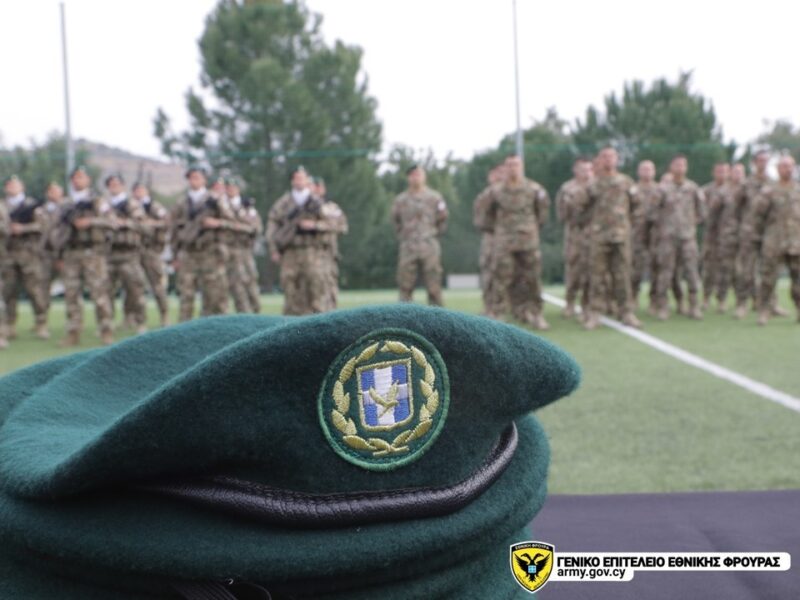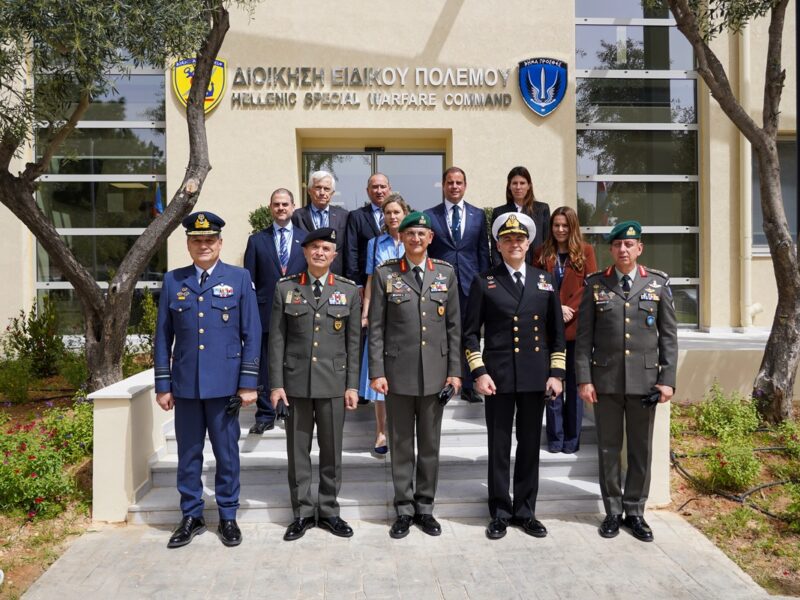On September 11, Alexis Papachelas, commenting on the discomfort caused to Turkey by the expansion of the American presence in Greece, through agreements such as the one for the port of Alexandroupolis, also touched on the aspect of the Turkish request for the sale of F-16V fighters.
Regarding this crucial issue for the evolution of the Greek-Turkish balance of power, the respected journalist pointed out that the Turkish request is initially being treated positively by the American government. But he extended the case, revealing the discussion between Athens and Washington, on the subject. It specifically said:
“But because the Biden administration will nevertheless try to advance the F-16 deal, a new doctrine has emerged, which is currently being discussed behind closed doors between Athens and Washington. The idea is that Turkey will get “what it is entitled to” in terms of armaments, but the US will ensure that Greece is supplied with weapons systems that will give it a “qualitative advantage”. In other words, the Turks will get the F-16 upgrade, but Greece will go one level higher by asking for a system or some specific type of equipment that will be considered more advanced and give it a tactical advantage. This is an evolution of the 7:10 formula in the provision of material to Greece and Turkey that Athens accepted for the lifting of the embargo imposed by Congress after the invasion of Cyprus. This formula can satisfy Greek interests – according to experienced officials – although it is a … expensive solution that does not seem to be covered by American funds, at this time.”
The framework – the basis on which Washington and Athens agree to find a solution acceptable to the Greek side to the American-Turkish issue – is revealed. The development stems either from the provisions of the Strategic Bilateral Enhancement Agreements (MDCA), or from the US-promoted legislative framework linking Turkish provocative air activity in the Athens FIR to the F-16V sale, or both.
According to Papahelas, the Turkish request is considered “fair” by Washington. Obviously, the Turkish demand for the return of the investments made by Ankara as a member of the F-35 program must somehow be satisfied by the US, either monetarily or (better) with the supply of alternative hardware. As the F-35 deal involved Lockheed Martin, it is only natural that a deal would be sought for an alternative to it, such as the F-16V.
In “exchange”, the US offers to Athens, or it requests from the first, the purchase of more advanced fighters such as the F-35, which will give a “qualitative advantage” to the Air Force, since the sale of F-35 to the Anchor. This is a return similar to the 7:10 formula in the provision of used equipment to Greece and Turkey, which Athens claimed and received from the US in the second half of the 1970s, in order to lift the arms embargo imposed on Turkey due to the invasion of Cyprus.
Such an agreement would neutralize the legislatively promoted restrictions on the sale of aviation equipment to Turkey, as long as it continues provocative flights in the Athens FIR. And here it should be noted that the challenges are not fundamentally different, whether they come from F-35s, F-16s or drones. Of course, the proposed legislation leaves a “window” for the American president to approve arms sales to Turkey, citing reasons of national security. But it is obvious that if the Greek side succeeds in having a relevant legislative provision, as a pending Damocles sword, there will be a lever of pressure for Turkish delinquent behavior that destabilizes the region. In this regard, the intensity of Turkish violations, violations and overflights, as well as the consolidation of illegal UAV entries, serves the Greek argument and facilitates its policy.
As the Greek-American “negotiation” regarding the sale of F-16V to Turkey continues, it is good to make certain extensions to the American side, in terms of “national security reasons”.
At a time when Turkish air traffic violations against an allied country continue in the Athens FIR, the green light for F-16Vs will be interpreted as rewarding Ankara’s piracy and destabilizing policy. Can the US accept that this serves its interests?
The sale of F-16Vs to Turkey circumvents the CAATSA legislation and this undermines the prestige of the US, especially vis-à-vis an ally who, even in the case of the Ukraine war, deviates from the allied line.
The F-16V sale is probably the last sale of US fighter jets to Turkey, as Ankara has launched a development program for a future fighter that, if all goes well, could be counted on from the mid-2030s. is it necessary to secure a $2-3 billion contract for the F-16Vs, thus risking the destabilization of the wider region by a Turkish attack in the next 10-15 years against Hellenism?
Turkey has drastically reduced its procurement of US weapons systems, due to the government’s policy of developing a domestic defense industry. In recent years, Turkish purchases of US hardware have been Sea Hawk helicopters for the navy, CH-47F Chinooks for the army and BAE Systems armored amphibious vehicles (shown as the FNSS’s domestic ZAHA), depleting momentum. In co-development programs, US-Turkish cooperation appears to be limited to the Bozdoğan and Gökdoğan air-to-air missiles, as well as to avionics (Özgür program), while American-sourced engines are proposed for air platforms. Do these programs fall under the CAATSA sanctions regime or not? Especially the programs related to air power, can emerge as a major source of concern for the Greek side, related to the encouragement of Turkish aggression in the air.
The maintenance of US legislative restrictions on the sale of aircraft material and spare parts to Turkey is a control step – limiting the intensifying Turkish aggression against an ally and an important partner of the US.
All of the above are very essential and important issues for the Greek side, in relation to the “offer” of the F-35 supply in exchange for the green light for the Turkish F-16V.


